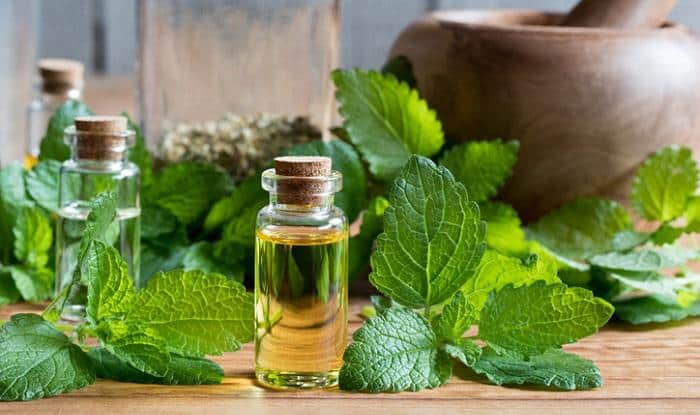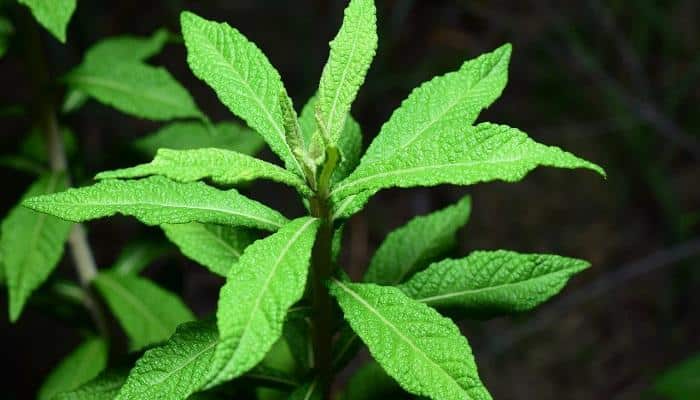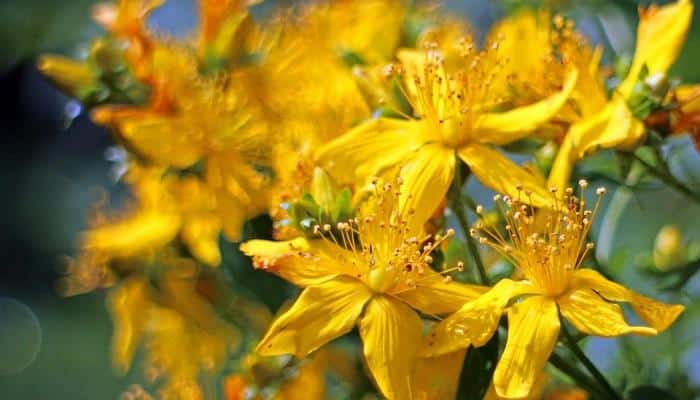Cold sores can be painful and inconvenient to deal with. It can be even more inconvenient and challenging to find ways to easily prevent them from getting worse or help with the symptoms at home.
While over-the-counter topical medications are available to help speed healing and deal with the symptoms, those with the most painful types of cold sores (including those caused by herpes simplex virus, or HSV) may face having to get tested or receiving a doctor’s prescription before getting the relief or medications they need. This can be a great inconvenience when dealing with pain or going to social functions.
Natural remedies, especially in the form of essential oils, can help fulfill this role in the meantime. They may soothe pain, speed healing, and even prevent cold sores from becoming worse or bigger (or fully erupting).
Many common herbal ingredients in essential oils have been scientifically shown to have antiviral activity against HSV. So if you can’t get an antiviral or other cold sore prescription right away—or if you wish to find relief before actually testing to be sure if you have a herpes cold sore—using essential oils could help on all fronts. We’ll explore the 8 best essential oils for cold sores here in this article.
What are cold sores?
Also commonly called fever blisters, cold sores are fluid-filled blisters that form near your mouth or lips. They can also pop up inside your mouth, on your cheeks, or around your nose.
While pain, oozing, or itching are the worst physical symptoms you’re likely to deal with, the biggest discomfort of all may be cosmetic. Cold sore blisters ooze and scab over when they burst, leaving those who get them with noticeable scabs or marks, sometimes for up to 2-3 weeks. This can greatly interfere with your daily life and self-confidence.
Causes and symptoms of cold sores
Cold sores are caused by a virus, usually herpes simplex (HSV) type 1 or sometimes HSV type 2. Though viral in nature, they can sometimes be triggered by stress in conjunction with a virus, or with some immune suppression (like a cold, flu, overworking, or burnout).
The symptoms of cold sores come in stages. These are:
- There may be a sensation of burning or itching where the cold sore is about to emerge. It can also feel tender on the spot like a pimple or zit.
- Painful, tender spots come to a head and form a fluid-filled blister.
- Eventually the blister breaks. This leads to open skin that oozes, scabs over, and could impact appearance.1
Common remedies for cold sores
For mild cold sores, a doctor may simply recommend applying ice daily to the site for pain and swelling. You can also get topical over-the-counter creams to help with pain and enhance healing. Numbing agents with menthol or eugenol may help.
For particularly bad sores, however, it may take some time to get a doctor’s visit and antiviral prescription for the sore, especially if it is considered a serious complication of HSV (though not always). A doctor may even wish to test you for your sore before prescribing. This can cut into precious time applying or using medications that could shorten the time you have the sore and how much it impacts your life. By the time you get your hands on medications that could help you, the cold sore may have progressed or gotten bigger, which could have been prevented if you had remedies that worked in a similar way sooner.
This is where essential oils for cold sores can come in handy…
The best essential oils for cold sores
Essential oils are not only known to have some benefit for speeding healing and reducing scabbing, but they also require no prescription, testing, or wait time to use them. They are also safe to use (when used correctly).
The following oils can each be topically applied with a clean cotton swab, cotton ball, pad, cloth, or fingertips directly on sores. They can help with pain relief, preventing oozing or scabbing, and reduce the eventual severity of scabbing. In some cases, they could even cut down on healing time or reduce sore size.
Use caution with dilution when applying essential oils for cold sores on any blisters during the open or “eruption” stage. If not diluted correctly in a lotion or carrier oil—or if applied in pure form and put on too strong— essential oils could cause burning, stinging, or discomfort. Always be sure to source your essential oils from a trusted and reputable company.
Lemon balm (melissa)

This mint-family herb is known to have antiviral properties. Research shows that it can stop the binding of HSV type 1 to cells, meaning it may reduce the time you have a cold sore.2 Like other mint species that contain menthol, lemon balm could also have a cooling, pain-relieving effect on the site. Lemon balm was traditionally used topically as an “analgesic” or mild pain reliever for just this purpose.
Rosemary
Rosemary essential oil is high in an antioxidant called rosmarinic acid, which is also found in many other members of the mint plant family. One study found that rosemary extract showed promise preventing both HSV types 1 and 2 from binding to cells and worsening into developing cold sores, thanks to its rosmarinic acid. Researchers noted that rosemary essential oil could both help prevent and fight against herpes cold sore infections.3
Peppermint
Yet another prominent member of the mint family, peppermint essential oil is very commonly used as a topical pain reliever for all sorts of ailments. It could help with the pain of cold sores as well. One study also mentions that peppermint has antiviral or “virucidal” activity, meaning it directly discourages and kills viruses in the body. It was shown to be effective at combating both HSV type 1 and type 2.4
Spearmint

Like peppermint, rosemary, and lemon balm, spearmint is another useful mint-family remedy to have on hand as an essential oil for cold sores. Cooling analgesic menthol could help soothe pain, while spearmint has also been tested and used for many years for antiviral activity. A recent 2021 study showed intriguing results for spearmint fighting against HSV type 1 as an effective virus-killer, which could be healing for cold sores, too.5
Ginger
This Asian root already has a great reputation for supporting viral respiratory illnesses, such as colds or flu. Can the essential oil help with viruses like herpes that cause cold sores? The research is promising: one paper mentions a study where ginger essential oils were used against both HSV types 1 and 2 with great results. When analyzed in vitro, ginger appeared to actively be killing the virus.6
Eucalyptus
Essential oils from the leaves of this Australian tree are famous for their antimicrobial and antiseptic wound-cleaning benefits. For cold sore care (including herpes cold sores), eucalyptus could be just as useful. One study found that extracts of the tree’s oils were comparable to some of the most antiviral drugs for herpes and cold sores.7 Researchers also noted that use of eucalyptus could help cut down on the problem of antiviral resistance (much like antibiotic resistance) issues that could develop in the population.
Tea tree
Another natural remedy, tea tree also has robust credibility as an antimicrobial wound cleanser. Though it’s better known for fighting bacteria and fungi topically, there have also been some reports of topical benefits against infections of a viral nature—herpes cold sores being the most common. When put to the test, one study showed that it greatly slowed the ability of HSV type 1 to grow once it infected human cells.8 This may mean that it could shorten the duration of a cold sore.
St. John’s Wort

Most people who know about natural health would associate St. John’s Wort with helping depression, but that’s not all it’s good for. In ancient times, the bright yellow flower was used to heal and cleanse wounds. St. John’s Wort essential oil may help with the healing process of a cold sore. What’s more, research shows that the plant’s active constituent, hypericin, can stop the growth of both HSV type 1 and type 2, meaning it could be especially effective for cold sores.9
Cold sore essential oil blends
Natural remedies, especially in essential oil form, are much stronger in numbers. Using more than one essential oil together for your cold sore could possibly boost the chance of a much shorter healing time. It might also be difficult to choose just one essential oil to go with for helping your cold sores. For all these instances, here are some good essential oils for cold sore blends that I would recommend.
Prevention blend
Use ginger and St. John’s Wort together for a low-fragrance prevention combo, especially if you don’t want to turn to more fragrant oils like mints quite yet. That said, all the herbs featured in this article could help prevent the size and duration of dealing with a cold sore when applied on the site as soon as possible. St. John’s Wort could help cleanse the sore if and when it does burst.
Pain Relief blend
Combine lemon balm, peppermint, and spearmint together if the cold sore you are experiencing is especially painful. These will each have added antiviral benefits that could cut down on the size and healing time of your cold sore, with some mild cleansing benefits.
Cleansing blend
Rosemary, eucalyptus, and tea tree could form a powerful trio in the later stages, especially with large and oozing sores that are starting to scab. They could also help speed the healing process.
Use essential oils on your next cold sore
Having a cold sore can be a pain. It can sometimes even feel embarrassing—especially when you must go in to a doctor’s office for prescriptions or remedies. The impact on self-confidence can be discouraging, too.
On the other hand, essential oils for cold sores could help symptoms and confidence in more ways than one. They can help you feel more in charge of your health in a more DIY and natural way, and they may also provide relief and help to wipe the cold sore out much quicker. That said, be sure to use essential oils only as a way of supporting issues at home. Avoid using them to completely replace important prescriptions or medications from your doctor if cold sores become severe.
 About Adrian White
About Adrian White
Adrian White is a certified herbalist, organic farmer, and health, food, and agriculture freelance writer—and upcoming author. She is a past contributor to Healthline with bylines in The Guardian, Civil Eats, and Good Housekeeping. Adrian is also the co-owner and operator of Jupiter Ridge LLC, an organic farm growing diverse vegetables, mushrooms, and herbs.
Sources:
1.. Caporuscio, Jessica. “Stages of cole sore development: What to know.” Healthline Media UK Ltd. Medicalnewstoday.com.
2. Świa̧der, K., K. Startek, & C.H. Wijaya. “The therapeutic properties of Lemon balm (Melissa officinalis L.): Reviewing novel findings and medical indications.” Journal of Applied Botany and Food Quality 92 (2019): 327-335.
3. AL-Megrin, W.A., N.A. AlSadhan, et al. “Potential antiviral agents of Rosmarinus officinalis extract against herpes viruses 1 and 2.” Biosciences Reports 40, no. 6 (2020): BSR202000992.
4. Schuhmacher, A., J. Reichling, & P. Schnitzler. “Virucidal effect of peppermint oil on the enveloped viruses herpes simplex virus type 1 and type 2 in vitro.” Phytomedicine 10, no. 6-7 (2003): 504-510.
5. Demirci, F., A.E. Karadağ, et al. “In Vitro ACE2 and 5-LOX Enzyme Inhibition by Menthol and Three Different Mint Essential Oils.” Natural Product Communications 16, no. 11 (2021).
6. “Herpes Virus May Be Attacked by Ginger Root; the CBCD Reviews the Medical Literature.” ReleaseWire LLC. Releasewire.com.
7. Brezáni, V., V. Leláková, et al. “Anti-Infectivity against Herpes Simplex Virus and Selected Microbes and Anti-Inflammatory Activities of Compounds Isolated form Eucalyptus globulus Labill.” Viruses 10, no. 7 (2018): 360.
8. Brun, P., G. Bernabè, et al. “In Vitro Antimicrobial Activities of Commercially Available Tea Tree (Melaleuca alternifolia) Essential Oils.” Current Microbiology 76 (2019): 108-116.
9. Weber, N.D., B.K. Murray, et al. “The Antiviral Agent Hypericin has in vitro Activity against HSV-1 Through Non-Specific Association with Viral and Cellular Membranes.” Antiviral Chemistry and Chemotherapy (1994): 83-90.